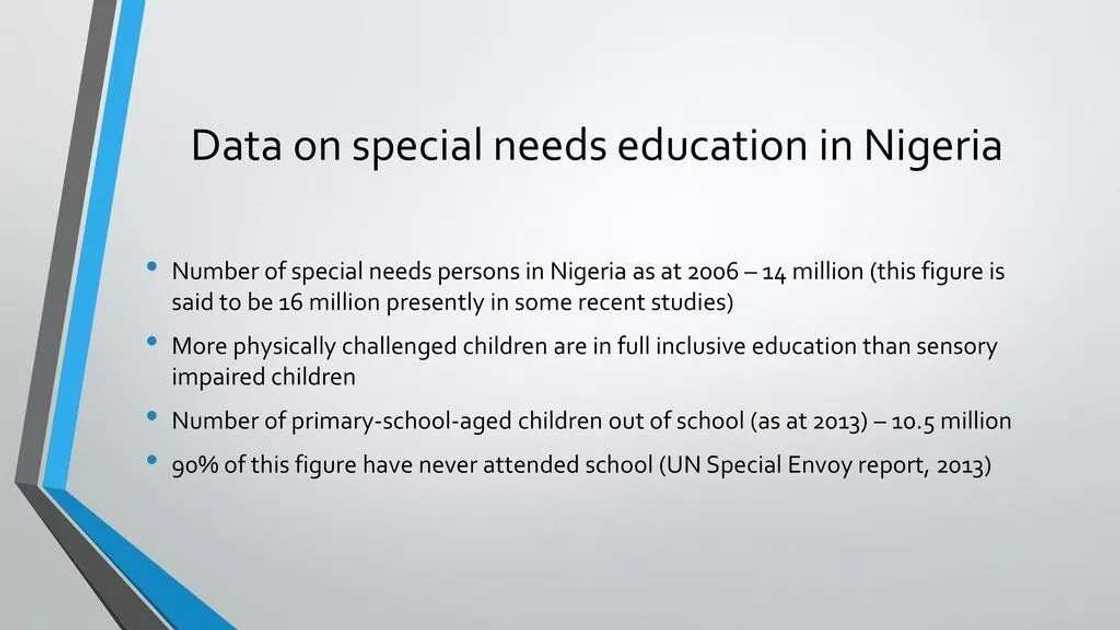How special education began in Nigeria
Special education and related services began in Nigeria, decades ago courtesy of the efforts of missionaries from Europe and America.
Although the government took over the responsibility of providing special education and related services to individuals in the late 1970s, evidence indicates that the provision of these services is beset by numerous formidable obstacles such as the absence of supporting laws, inadequacies in funding of services, inclusion programs, early identification and intervention services, personnel training programs, facilities, and educational materials.
Special education in Nigeria has a fairly short history, only becoming a public concern in 1975.

Before the government stepped in at this time, those with special needs were looked after by different religious or voluntary groups, such as the School for the Blind of Gindiri and the Wesley School for the Deaf in Lagos.
Public special education began to change in 1975. The National Policy on Education was passed in 1977 and revised in 1981. The policy has a section devoted to special education.
The Blueprint on Education of the Handicapped in Nigeria started in 1989, which established several schools catering especially to those with special education needs.
The 2006 national census puts the figure of persons with disability in Nigeria at 3,253,169, with about 39 per cent of school age. This calls for concerted efforts by all and sundry to make life worthwhile for these people.
There were also schools established that made it possible for those with special needs to learn alongside those with no special needs.

This program also instituted the Consultative Reference Committee on Special Education. Not only does the 1989 program collect statistical data on special needs children and education, but it also implements training programs that prepare teachers to work with these students.
One of the major challenges of special education in Nigeria is transporting the children to and from school. this is a tremendous challenge for many families, especially for children who cannot sit on their own
READ ALSO: Importance of civic education in Nigerian schools
Another aspect of the program is that facilities are provided for all levels of special-needs children. There is even a scholarship available through the Federal Ministry of Education reserved for those special-needs children who wish to move on to secondary education.
Starting in 1994, special-needs children in these government-funded programs have had their performance evaluated.
Source: Legit.ng



